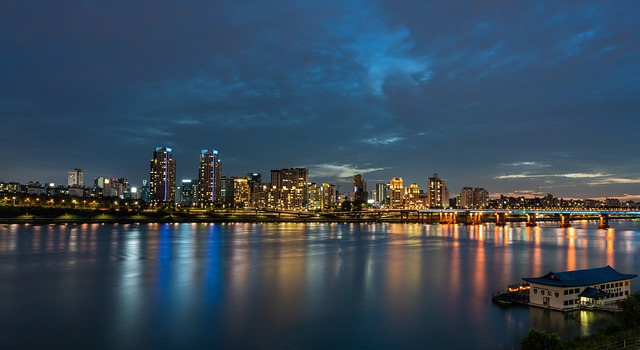
Understanding the Cost of Living in Major Cities of South Korea
South Korea’s major cities, such as Seoul, Busan, and Incheon, offer a vibrant urban lifestyle with a unique blend of traditional charm and modern amenities. If you’re planning to live in one of these bustling cities, it’s important to have a clear understanding of the cost of living. In this article, we explore the cost of living in major cities of South Korea, covering key aspects such as housing, transportation, food, and entertainment.

Housing Costs:
Housing costs in South Korea’s major cities can vary significantly depending on factors like location, size, and type of accommodation. In Seoul, the capital city, housing prices tend to be higher compared to other cities. Rent for a one-bedroom apartment in the city center can range from $700 to $1,500 per month, while outside the city center, it may range from $500 to $1,000. Shared accommodation or officetels (studio apartments with built-in office space) can provide more affordable options.
Transportation Expenses:
Public transportation in South Korea’s major cities is efficient and widely used. In Seoul, the subway and bus systems offer extensive coverage, making commuting convenient. The cost of public transportation varies depending on the distance traveled, but on average, a one-way subway ticket costs around $1.50. Monthly transportation passes are also available, offering savings for frequent commuters.
Food and Groceries:
South Korea offers a diverse culinary scene, and the cost of dining out can vary depending on the type of restaurant and location. In major cities, a meal at an inexpensive restaurant can cost around $6 to $8 per person, while a mid-range restaurant meal may range from $15 to $25. Cooking at home can be more economical, with groceries costing around $150 to $200 per month for basic items.

Utilities and Internet:
Utilities, including electricity, water, and heating, are typically included in the monthly rent. However, if you’re renting a separate unit, expect to pay around $100 to $150 per month for these services. High-speed internet services are widely available and can cost approximately $25 to $40 per month.
Healthcare and Education:
South Korea is known for its advanced healthcare system. While the National Health Insurance system provides affordable and comprehensive coverage, it’s important to consider additional costs, such as co-payments for medical services and medications. Education costs, including international schools or universities, can vary widely, so it’s advisable to research specific institutions for accurate pricing.
Entertainment and Recreation:
South Korea offers a vibrant entertainment and cultural scene. Costs for leisure activities, such as going to the movies or visiting museums, can range from $5 to $15 per person. Nightlife options, such as bars and clubs, may have cover charges or higher drink prices, depending on the venue.
Living in South Korea’s major cities offers a dynamic and exciting experience, but it’s essential to be aware of the associated costs. While certain expenses like housing and dining out can be higher in cities like Seoul, the overall cost of living is manageable. By carefully budgeting and exploring cost-effective options, you can enjoy the diverse cultural offerings and vibrant lifestyle that South Korea’s major cities have to offer. It’s recommended to research specific cities and neighborhoods to gain a more accurate understanding of the cost of living and plan accordingly for a comfortable and enjoyable life in South Korea.









